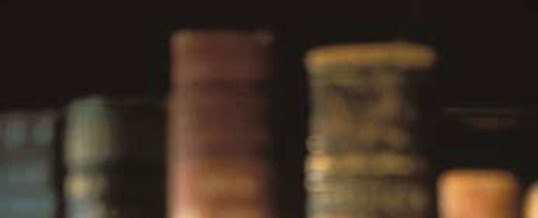We read two puzzling statements as God prepares to exact the plagues in this week’s parasha. “And I will pass through Egypt … and I will smite every first-born … and I will exact judgments against all the gods of Egypt. I am God” (Exodus 12:12). Moreover, on that night, “[T]here will be a great cry throughout all Egypt, the like of which never before has been and never again will be. [But] against the Children of Israel ...
Continue Reading → SharePARSHAT BO
This week’s Parsha is one of the three or four Torah portions most central to the Jewish narrative, as we read of the final plagues, the storm brought by God’s mighty hand and outstretched arm gathering on the border of Egypt, the Divine command to prepare for the Exodus by baking the matzot and eating the bitter herbs. It is the essence of the Passover story. We were slaves to Pharaoh in Egypt, and the Lord took us out ...
Parashat Bo (Commentary 2)"> Continue Reading → ShareTziporah enjoyed extraordinary social status within her native land. But after Yitro, the priest of Midian, gave his precious daughter as a wife for Moshe, she was the subject of gossip among a new people (Bamidbar 12:1). Hakodesh Barukh Hu intervened on Tziporah’s behalf, but there is no record that anyone else spoke up for her.
It is particularly painful to think that slander and other such defamation might arise, however infrequently, amid a people whose rituals ...
Continue Reading → ShareParashat Terumah is the first of the weekly Torah portions with a narrative that fails to excite. We have been reading about the world’s creation, the Flood and its diluvial ramifications, the stories of our matriarchs and their husbands, the Great Exodus from Egypt that brought us — with no apparent exit strategy — to the Sea of Reeds, and then Mount Sinai, where God Almighty, amid thunder and lightning, revealed Himself to our nation of millions by ...
Continue Reading → ShareVAYAKHEL: ON HEROES AND PROCRASTINATORS
We have devoted the past few weeks to reading G-d’s instructions to the Nation of Israel for building the Mishkan (Tabernacle), the portable Holy Temple that will travel through the Sinai Desert with the nation and will follow them into the Promised Land for centuries to come. By now, all the details have been set forth with precise instructions: the types of wood and fabrics, the quantities, how they are to be constructed and connected. In ...
Continue Reading → ShareThe traditional English translation for the disease tzora’at that is eponymous with this week’s Torah portion, Metzora, is “leprosy.”
However, as our commentators explain, biblical leprosy was something very different from the bacterial leprosy of modern times that is attributed to the bacillus Mycobacterium leprae.
Biblical leprosy traces to a different kind of disease, an infection permeating the spirit and the soul, the disease of lashon hara (or its Ashkenazic variant spelling, lashon hara): evil talk, ...
Continue Reading → ShareThis week’s Torah portion lays out a comprehensive array of divinely ordained commandments that define the range of Judaism’s unique values. Legislated to an assemblage of just-liberated slaves, these are the concepts and aspirations taught orally to Moshe at Mount Sinai and thereafter transmitted in an appendix — the written Torah. Through them we were sculpted into an entity greater than mere physical emancipation could have offered. We were made holy.
In Judaism, “holiness” is epitomized by ...
Continue Reading → ShareNot all of us realize it, but Parshat Emor is one of the most frequently read Torah portions we encounter. We typically read it in May, and again on Passover’s second day and on the first two days of Sukkot. It is read on these two festivals because, like D’varim (Deuteronomy) chapter 16 in Parshat Re’eh, it sets forth critical details that define the Torah observances’ unique requirements for us.
Why not take a moment’s pause in reading this ...
Continue Reading → ShareB’HAR-B’CHUKOTAI
This week’s Torah double-portion, B’Har-B’Chukotai, begins: “And the Lord spoke to Moshe at Mount Sinai, saying. . . . .” (Vayikra 25:1). At the end of our reading, we conclude the Torah’s third Book with: “These are the mitzvot that the Lord commanded Moshe for the children of Israel at Mount Sinai.” (27:34)
What exactly do we understand happened at Mount Sinai?
This question was posed to me forty years ago when I was an undergraduate at Columbia University. The Religion Department ...
Continue Reading → ShareNot many people among Irvine’s pedestrians and shoppers wear yarmulkes — yet.
The city’s Orthodox Jewish community indeed has expanded in recent years to four Orthodox congregations — including our own Young Israel, two Chabad congregations, and a fourth where I previously served — as well as an eruv (a wire boundary that allows Jews to perform tasks in public on Shabbat that would be otherwise forbidden) and a forthcoming mikvah (ritual bath). Even so, not many ...
Continue Reading → Share